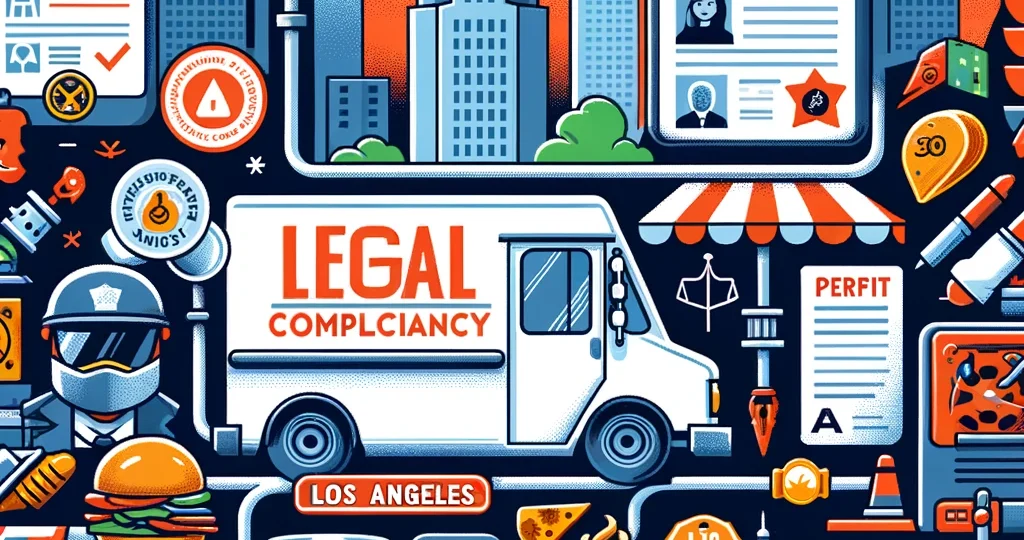
If you are a food truck business, or aspire to be one, understanding legal compliance for food trucks in Los Angeles is key. The food truck culture in Los Angeles is not just about serving up diverse and delectable dishes; it’s also about navigating a complex web of legal requirements. For aspiring and established mobile vendors alike, understanding the ins and outs of food law is crucial to ensure a smooth operation. This guide delves into the essential regulations, licensing needs, and operational guidelines for food trucks in Los Angeles, paving the way for a compliant and successful venture. This is by no means an exhaustive guide for mastering legal compliance for food trucks in Los Angeles, for that, you would need to consult an expert food law attorney.
Licensing Essentials for Your Food Truck:
- Mobile Food Facility Permit: A non-negotiable requirement, this permit from the Los Angeles County Department of Public Health is the first step in launching your food truck. The application process includes thorough inspections, detailed plan reviews, and the payment of associated fees.
- Business License: You’ll need to secure a business license from the City of Los Angeles or any other local jurisdiction where your truck will operate.
- Specialized Permits: Depending on your menu, you may need additional permits for alcohol sales, using amplified sound systems, or employing certain food preparation methods.
Navigating Operational Regulations:
- Location and Parking: With specific parking restrictions and designated vending zones, it’s vital to familiarize yourself with the local laws to avoid fines and ensure you’re serving in the right spots.
- Food Safety & Sanitation: Adhering to strict food safety guidelines is paramount. This includes investing in the right equipment, maintaining a clean workspace, and following all temperature control rules.
- Waste Management: Partner with licensed haulers for waste disposal and comply with local recycling and composting regulations to keep your operation environmentally friendly.
Additional Considerations for Mobile Vendors:
- Eco-friendly Packaging: In line with Los Angeles County’s waste reduction ordinance, food trucks are encouraged to use compostable or recyclable containers, reducing environmental impact.
- Employee Welfare: Ensure all staff are aware of their rights and comply with minimum wage laws and food handler certifications.
- Insurance Coverage: Protecting your business with adequate liability insurance is essential for safeguarding against unforeseen incidents.
Staying Informed and Seeking Expert Advice:
The landscape of food law in Los Angeles is dynamic, making it imperative for food truck owners to stay updated on the latest regulations and seek professional guidance when necessary. Resources like the Los Angeles County Department of Public Health and the California Department of Public Health are invaluable for information on permits and food safety. Additionally, consulting with a food law attorney can provide tailored advice to navigate the complexities of the legal framework, ensuring your mobile food business not only complies with the law but thrives in the bustling Los Angeles food scene.
